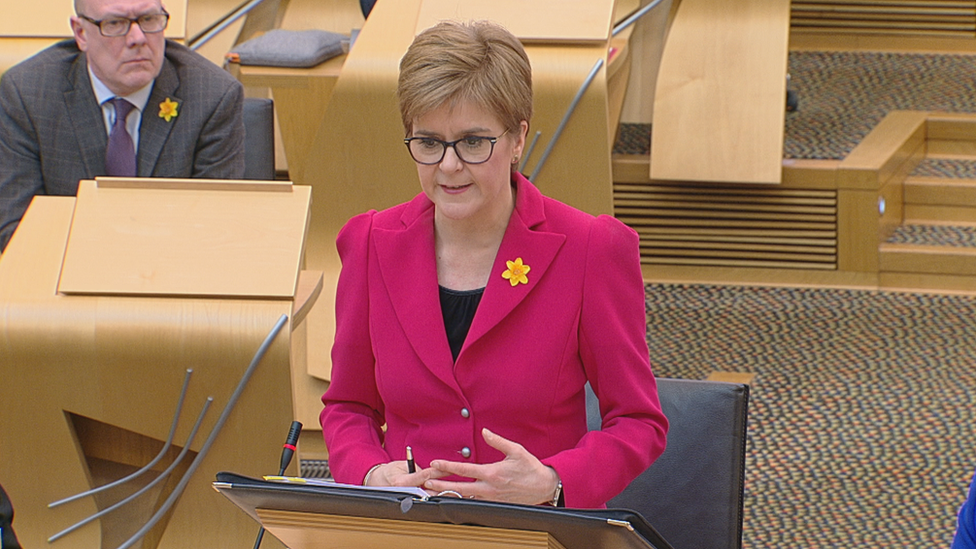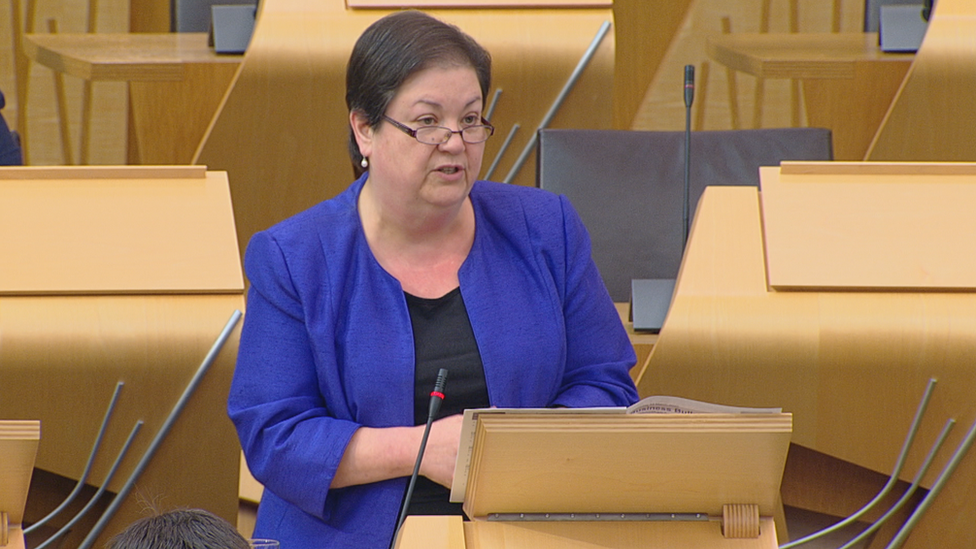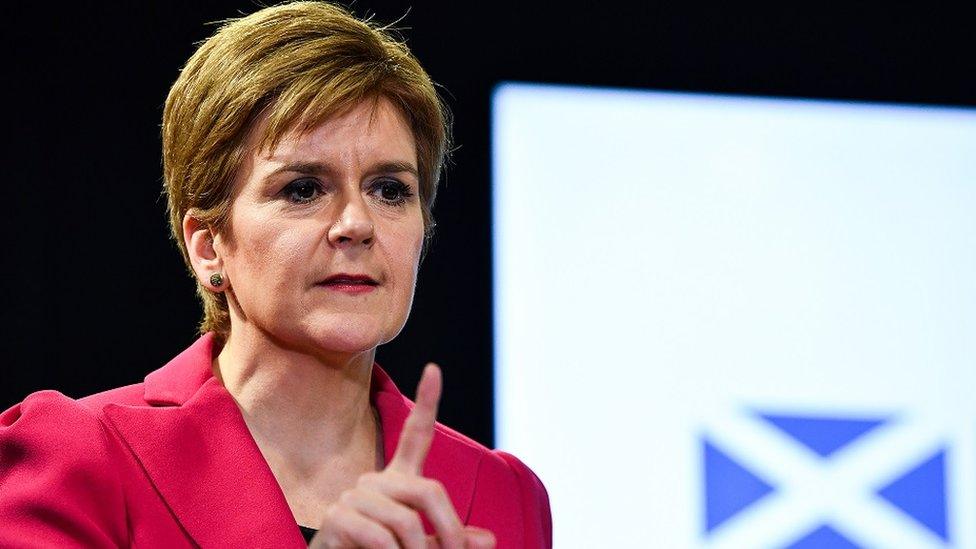Coronavirus breeds uncertainty
- Published

As I write, there is little in the way of certainty. It seems highly likely that further stringency will be applied in the efforts to combat the coronavirus crisis.
But, at this stage, there is - entirely understandably - no precision as to what that stringency might ultimately involve in terms of the impact upon people.
However, there is one thing that appears clear. One element that has already entered suspension, to some extent at least.
That is overtly partisan politics, in the context of discourse about the virus.
In questioning the first minister today, opposition leaders all pursued the role of interlocutor and polite interrogator - rather than combatant.
Indeed, Jackson Carlaw of the Conservatives appeared to be choreographing his questions to allow the first minister to offer more information and detail to the viewing and listening public.
That, in my view, is entirely right and commendable. To be clear, there is a time for combative politics, for sharp rhetoric and satire.
However, that time is not now.
An hour or so after the exchanges at FMQs, the Scottish government confirmed that the number of coronavirus cases in Scotland had risen sharply to 60., external
That rise was anticipated - indeed, it was forecast by Nicola Sturgeon during the question session. That was the context in which the sundry questions were posed.
Mr Carlaw asked in turn about strategy, about schools, about the impact on business. In each case, he had detailed inquiries to lodge.
But they were genuine inquiries. Seeking information. Seeking reassurance, where possible, for an anxious, fretful citizenry.
Labour's Richard Leonard and Willie Rennnie of the Liberal Democrats followed suit. Mr Leonard asked about the particular impact upon older people.
He then added a little touch of bite when suggesting that social care workers were generally undervalued - just when their role would be even more crucial than normal.
But it was not an aggressive question, not in the slightest. And it enabled Ms Sturgeon to agree that the social care sector deserved every support.
Mr Rennie pursued the question of the availability of isolation spaces in our hospitals. Again, Ms Sturgeon sought to offer reassurance - while conceding that the situation was moving rapidly.
Despite that fluidity, Ms Sturgeon took the chance to signal her intent, to signal her direction of travel.

Jackie Baillie said the Scottish government should act now to tackle the crisis
She said that she was minded to prohibit mass gatherings of more than 500 people from next week. Not because the gatherings themselves were hazardous but because they piled more pressure upon the emergency services - just at the moment when all their focus was needed to help cope with the wider crisis.
However, she argued that such a prohibition should not apply, at the moment, to schools, colleges or universities.
Firstly, they did not absorb the time of the emergency services as other large gatherings do. Secondly, it could be argued that - in the absence of school - young people might muster in social groups, with perhaps a greater danger of infection.
Amid this emerging consensus, there was perhaps one reminder of the extent of the pressure heaped upon the first minister. Pressure to call this correctly.
Again without any vitriol whatsoever, Labour's Jackie Baillie - a former minister herself - told the chamber she had heard from a local GP in her constituency who had urged more immediate action to tackle the crisis.
Why not act now, she asked the FM? Would not delay involve risk? Ms Sturgeon stated the challenge in bald terms. She was not a clinician. Not a doctor.
Consequently, she and others had to rely upon expert, medical advice. It was important to get the timing right with regard to enhanced stringency. Important to move at the right moment from containment to delay, with its attendant constraints.

EASY STEPS: How to keep safe
A SIMPLE GUIDE: What are the symptoms?
CONTAINMENT: What it means to self-isolate
HEALTH MYTHS: The fake advice you should ignore
MAPS AND CHARTS: Visual guide to the outbreak
VIDEO: The 20-second hand wash

I am an admirer of the French writer and thinker, Voltaire. In his novel Candide, he reminds us that "il faut cultiver notre jardin". We should set aside abstruse philosophical meanderings and, instead, focus on digging our garden, on productive effort.
In comparable fashion, after a detailed series of exchanges, Ms Sturgeon closed in a similarly pragmatic fashion by reminding us of the need to wash our hands.
- Published12 March 2020

- Published9 March 2020

